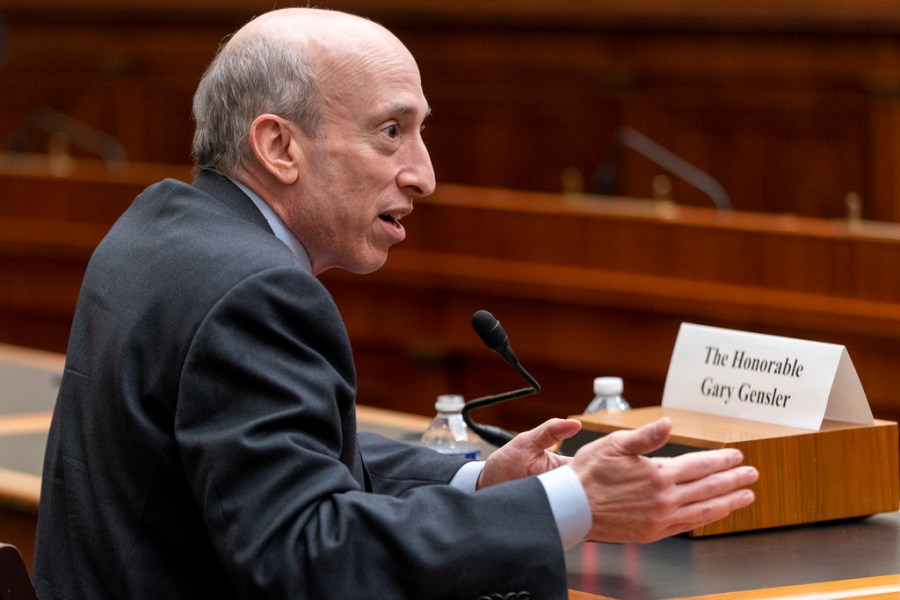A distinct strand in the campaigns of victorious Republican candidates was concern about pervasive and growing government regulation that saps economic freedom, opportunity and growth. That has been a particular complaint about the current Securities and Exchange Commission, which is controlled by three commissioners affiliated with the Democratic Party.
All three of those commissioners should heed the march of history and resign before Jan. 20. That would allow the new president to appoint commissioners to join the two current Republican commissioners in demanding that any new regulation respond to a genuine need and produce meaningful benefits.
The SEC has three commissioners aligned with the Democrats and two associated with Republicans. The Democratic commissioners are Chair Gary Gensler and Commissioners Caroline Crenshaw (currently renominated for another term) and Jaime Lizárraga. Two of them — Gensler and Lizárraga — have already stated they intend to resign before the new president is sworn in, but all three Democrats have been necessary votes for the aggressive rulemaking agenda during the past three years.
The SEC majority started an era of super securities regulation. The Gensler Commission has produced a surge in overly-broad, deeply intrusive and particularized new regulations penetrating into all parts of the securities markets. Proposed and final rules searched for a real problem in the securities markets, exceeded the SEC’s statutory authority, or would add costs to the capital markets without producing net benefits.
The list of injurious and smothering regulatory actions is long, but a few examples will illustrate the problem. Leading the list even though it is well known is the majority’s position that nearly every crypto currency is subject to securities regulation. The SEC’s mindlessly persistent enforcement crusade combined with its haughty refusal to entertain reasonable efforts to conform to SEC compliance demands holds back the economic vitality of an innovation with intriguing possibilities.
Another well-known excess is the far-reaching regime for public company disclosures on climate change. Those rules create a separate and costly set of climate-change disclosures that overlap with already existing disclosures, fiddle with the way companies operate their boards of directors and senior management, and oblige many companies to report greenhouse gas emissions, which the federal environmental agency already requires. The two Republican commissioners opposed the rules, saying that the benefits do not outweigh the costs. I filed a brief supporting a pending court challenge to the rules.
Other recent SEC excesses are less publicized. The SEC majority adopted or proposed overwhelmingly detailed sets of regulations for broker-dealers and investment advisers. One was an oppressive set of procedures to deal with possible conflicts of interest associated with the use of technologies such as artificial intelligence. Another set of rules would have interfered with the negotiations between sophisticated investors and investment advisers to private funds — rules later found to be invalid by a federal court of appeals.
In these cases, the Republican commissioners dissented and raised important concerns about the actions of the Democratic majority, including questions about the SEC’s statutory authority. In each case, Commissioners Crenshaw and Lizárraga voted in favor along with Chair Gensler. For example, Crenshaw supported the private fund adviser rules with a paean to the SEC’s imperative, mandate, and responsibility to use public resources to protect sophisticated investors.
The SEC Democratic commissioners are seriously out of step with voter concerns about the drag on economic growth from burgeoning regulation. Two already said they would resign near the inauguration (Gensler and Lizárraga), and Crenshaw also should resign before the new administration takes office. That will enable the new president to install more commissioners attentive to the harmful consequences of needless securities regulation.
Resignation of SEC commissioners near the time of inauguration of a president of a different political party has precedent. SEC chairs have frequently resigned in those circumstances in past decades, and commissioners who were not chairs but were from a different party resigned within months of the inaugurations of Presidents Nixon, Reagan, George W. Bush and Obama.
Andrew N. Vollmer is a former deputy general counsel of the Securities and Exchange Commission and former professor of law, general faculty, University of Virginia School of Law.

